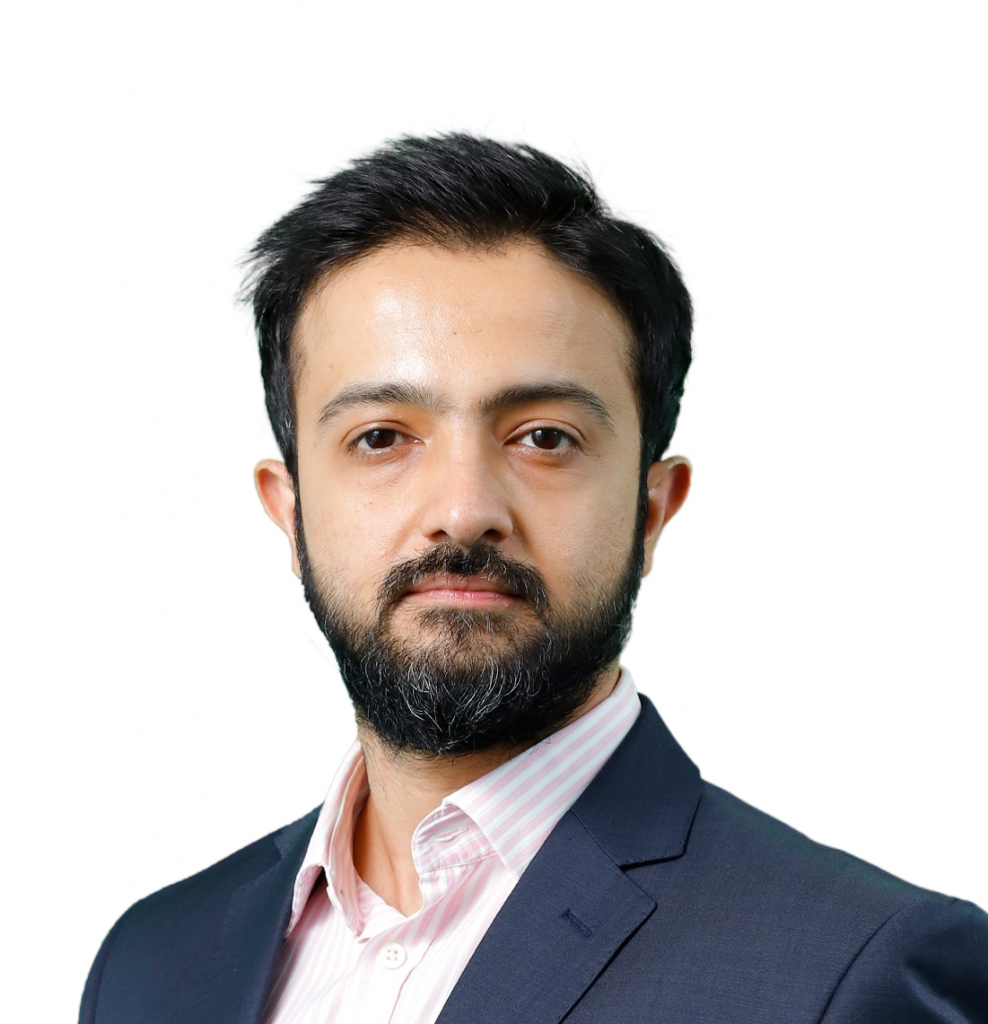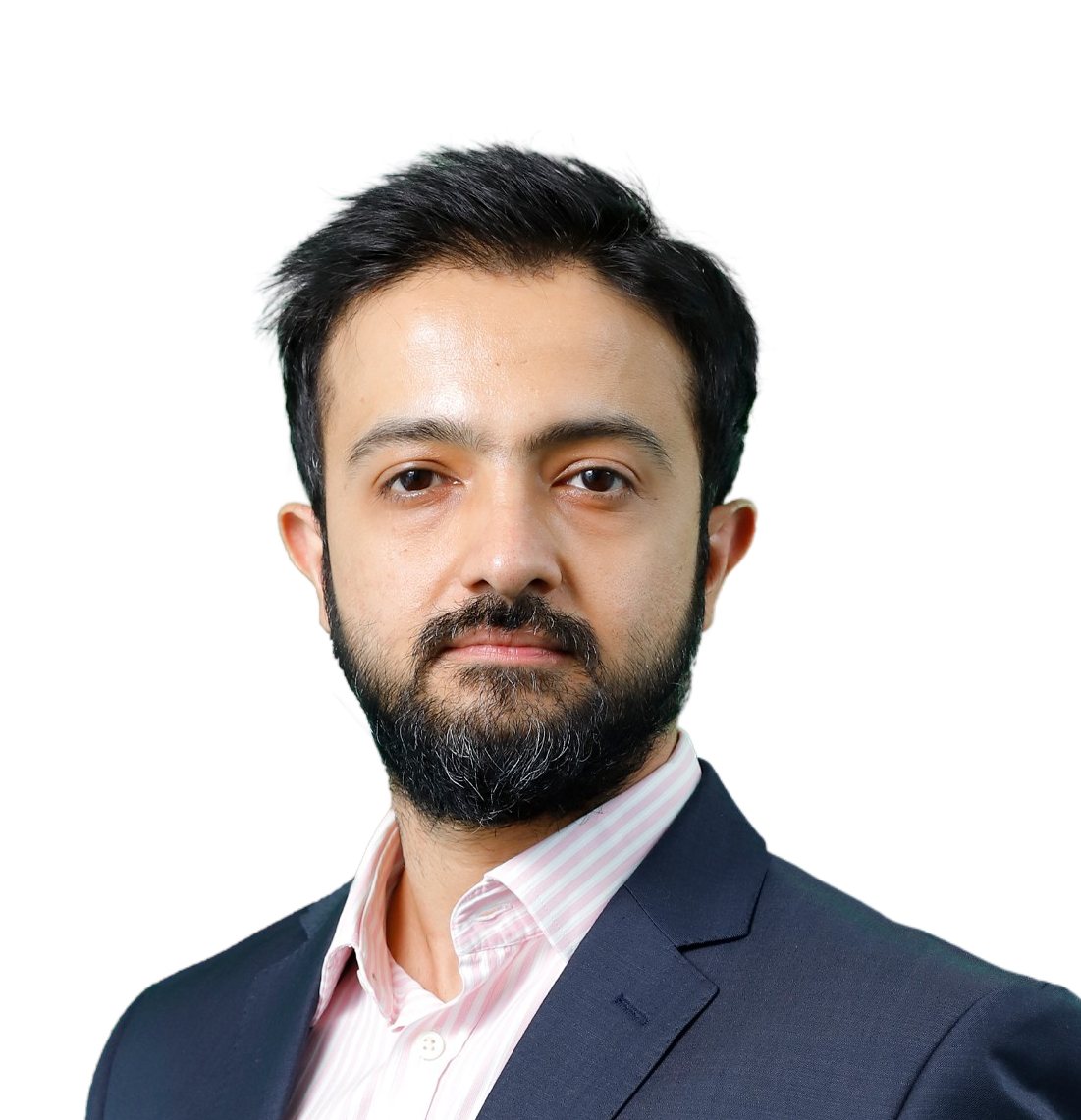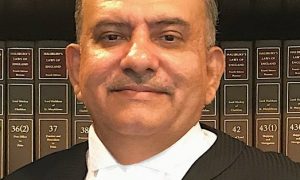This Interview has been published by Pragya Chandni and The SuperLawyer Team

Can you share with us your journey into the legal field, from your education at Queen Mary University to your current role as Group General Counsel and Founding Member at Vance?
My journey from pursuing LLM from Queen Mary, University of London to my current role has been a testament to perseverance and enthusiasm. As a first-generation lawyer, I embarked on this path driven not only by personal ambition but also by the inspiration of my father, whose own ambition inspired me to have a deep respect for the legal profession.
Studying abroad was a pivotal decision, marking the initial stride towards establishing myself in the corporate and commercial legal fraternity. Since then, my career has been characterized by a diverse array of experiences as an in-house counsel, navigating complexities in the fields of Real Estate, Information Technology & Privacy, Fin-Tech, Digital Payments, Digital Lending, Neo Banking, among others. From the moment I set foot at Queen Mary to the present day, each step of this journey has been marked by growth, learning, and the pursuit of excellence.
The opportunity to collaborate with Vance was not unexpected; rather, it was the culmination of a deliberate partnership with a visionary founder aimed at addressing the challenges of cross border payments and enhancing access to Indian banking and financial services for NRIs. Leading the legal, compliance and regulatory endeavours at a global level, I am privileged to contribute to the establishment of this groundbreaking venture. I am humbled to play a role in shaping the future of banking and financial services on this scale.
Throughout your career, you’ve worked in various capacities within the financial technology sector. What initially drew you to specialize in this industry?
Throughout my career, I’ve involved myself in various roles within the Fin-tech sector. However, it wasn’t until I got the opportunity at PayU Payments, where I stepped into a legal counsel role during the company’s establishment phase as a prominent B2B payments business in India. This pivotal moment ignited my passion and set me on a trajectory of growth within the fintech landscape.
From witnessing the nascent stage of payments in India to contributing to its evolution, my journey has been both exhilarating and transformative. Whether it’s pioneering digital payments at PayU, shaping digital credit strategies at Krazybee, driving the biggest of Indian payments products at NPCI, the umbrella organisation for operating retail payments and settlement systems in India or exploring the endless possibilities within the sector, I’ve found my niche and thrived in it. Fin-tech isn’t just where I work; it’s where I belong, and where I’ve honed my expertise.
Could you elaborate on the challenges you’ve faced navigating the intricate landscapes of information technology, digital payments, and licensing throughout your career?
A lawyer’s life is loaded with countless challenges, a reality I’ve faced firsthand while steering complex areas of Information Technology, Digital Payments, Credit, and Licensing. One particularly notable hurdle has been customizing legal advisory to keep up with the swift pace of technological advancement in this space. With innovations occurring rapidly, it’s imperative to ensure that legal frameworks and policies evolve in tandem, necessitating continual adaptation and innovation.
Additionally, staying abreast of frequent regulatory changes and requirements especially in payments and digital lending has been paramount. The regulatory landscape is constantly evolving, compliance has become non-negotiable, and the regulator appreciates no compromises- I have numerous instances at hand from the industry. It’s essential to remain proactive, continuously monitoring changes, swiftly adjusting strategies and operations to maintain regulatory requirements, compliance and mitigate risks.
Collaborating with business and product teams to evaluate and incubate new payments products has its own complexities. Balancing innovation with regulatory compliance and risk management requires careful navigation. Successfully achieving regulatory approvals often entails extensive coordination, documentation, and engagement with regulatory bodies, adding another layer of challenge. If I talk about structuring deals and negotiating technical agreements in this dynamic environment, it has been daunting as well. We need to strike the right balance between innovation, risk allocation, and legal & compliance demands strategic thinking and adept negotiation skills. Moreover, managing peers amid these challenges requires effective leadership, clear communication, and fostering a culture of adaptability and continuous learning.
Despite these formidable challenges, I’ve approached each hurdle with resilience and a commitment to excellence. By leveraging strategic foresight, interdisciplinary collaboration, and a robust understanding of both legal and technological landscapes, I’ve successfully managed to navigate complexities, while driving innovation, and fostering growth.
As someone with extensive experience in commercial law, what are some key strategies you’ve employed when structuring complex business transactions?
It doesn’t sound as simple as this question. There are various stakeholders involved in structuring a commercial transaction depending on its size, however, my priority is to build a clear communication with those stakeholders to outline a transaction’s contours. Thorough due diligence, risk assessment, and mitigation are crucial, along with ensuring compliance with relevant regulatory and tax requirements. Additionally, being a business lawyer, I always consider the commercial viability of the deal and its potential profitability from a business perspective, working closely with my business to align legal strategies with their business goals.
With your background in cross-border payments and global neo banking, how do you approach managing regulatory challenges in different jurisdictions?
Establishing business in different jurisdictions or dealing with regulators of different jurisdictions I tell you is a very challenging affair. This is something, expertise of which you do not have while bearing limited understanding. There must be a well thought through strategy. I prioritize thorough in-house research to gauge the feasibility of operating within each regulatory landscape. This involves understanding the legal and corporate structure(s) needed, which may vary significantly from one jurisdiction to another. When expertise is lacking, I rely on experienced consultants to guide us through the complexities either with respect to any kind of licensing, structuring, re-structuring, or other requirements. It’s crucial to have the right team in place to manage compliance both domestically and internationally, ensuring adherence to regulatory requirements while minimizing costs and risks. It could be a mix bag of domestic and international personnel.
As the Group General Counsel and Founding Member at Vance, what are your primary responsibilities, and how do you ensure legal compliance while fostering strategic growth for the organization?
I feel my responsibilities extend beyond traditional legal service a General Counsel could render, especially after joining hands with Vance. I am tasked with leading both domestic and international legal, compliance and regulatory initiatives, ensuring that every facet of our operations aligns with the relevant laws and standards. However, my role is not limited to legal here; I also embrace the strategic aspects of business development.
To ensure smooth functioning of my department while fostering strategic growth, I engage deeply with multiple facets of the organization. This involves a collaborative approach with the business, product teams and other relevant stakeholders to navigate complex challenges and identify growth opportunities. By thinking strategically before incubating and executing commercial arrangements, I ensure decisions serve the best interests of the business while maintaining robust compliance.
Key to our success is the establishment and management of competent teams across India and other countries where we operate. This global framework supports our mission to expand as a Neo Bank currently serving more than five countries, with further expansion on the roadmap. Building the right team is crucial, not only for managing our expansive legal framework but also for enabling Vance to grow strategically and sustainably on the international stage.
Throughout your career, you’ve demonstrated a passion for leading legal teams. What leadership principles do you prioritize when managing and motivating your team?
Until I received the opportunity to lead legal & compliance at Krazybee, one of the fastest growing digital lending organizations in India, I hadn’t led teams throughout my career. Leading a legal team is a position of immense ownership and comes with significant responsibility. Here, I prioritize several key principles, many of which I gleaned from working closely with my previous managers. Firstly, I emphasize the importance of clear communication to ensure everyone comprehends their roles and objectives. Secondly, cultivating a culture of trust and collaboration empowers team members and fosters a sense of value. Additionally, I believe in offering continuous support and mentorship to facilitate professional growth and development. The guiding principle is collective growth and development of the entire team. Lastly, I underscore the significance of adaptability and resilience in navigating challenges and embracing change within the legal landscape.
Considering your wealth of experience, what advice would you offer to fresh graduates aspiring to pursue a career in law, especially within the dynamic landscape of financial technology and business management?
I recall there was no mentor or proper guidance available to steer me in the right direction when I was graduating. As I progressed into my graduate years, I learned the intricacies of the legal industry and the life of a corporate lawyer the hard way. My foremost recommendation for fresh graduates is to seek guidance from seasoned lawyers in their vicinity, whether they specialize in litigation or corporate law, to gain insights into the industry and what lies ahead. It’s crucial to carefully consider which area of law they wish to specialize in, as there are various options available. They must engage in multiple internships during their undergraduate years, which is essential, as it prepares them for the intense competition they’ll face upon entering the workforce. Lastly, it’s important not only to focus on Fin-tech (it may be niche now, but may not be in the future) or business management but also to stay updated on the latest developments and rapidly changing technology in any area of law or other fields that find their interest.
Get in touch with Rahul Bakshi-
























